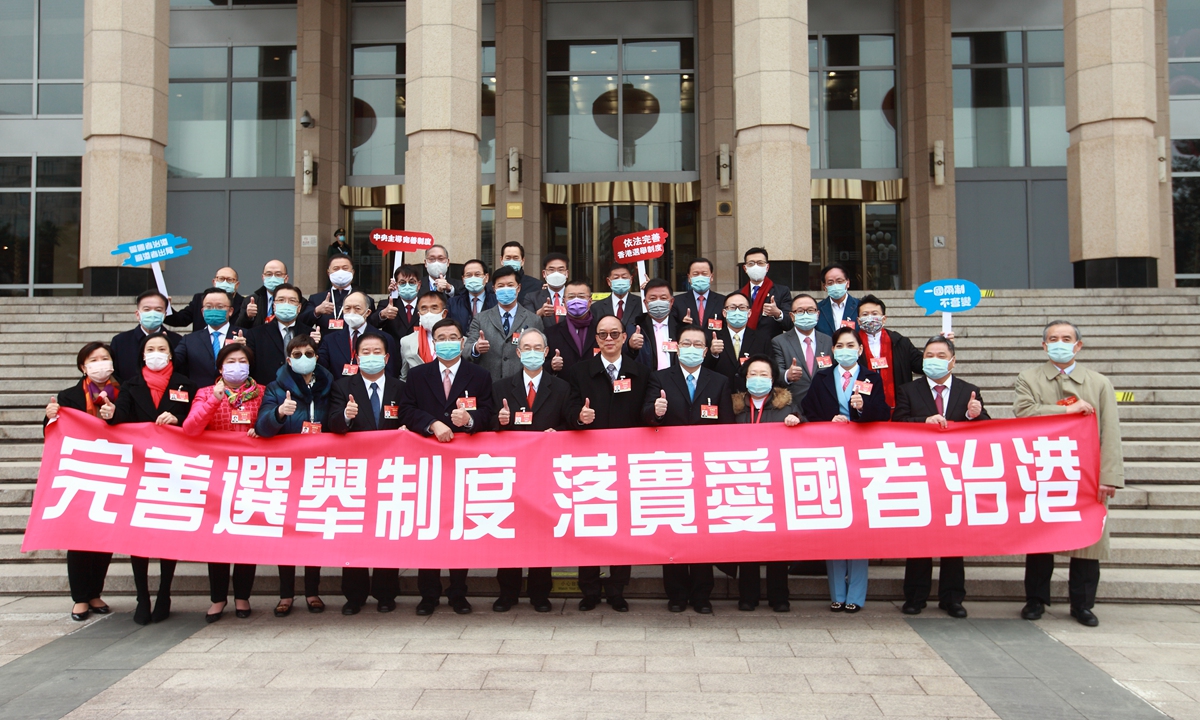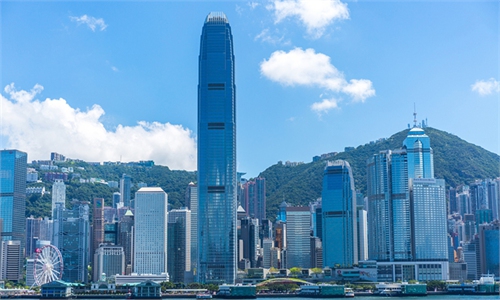200 HK civil servants refuse to pledge loyalty, asked to leave their positions

All Hong Kong deputies to the National People's Congress post for a group photo to show support to the draft decision to improve Hong Kong's electoral system in Beijing on Friday.
Nearly 200 civil servants who refused to pledge allegiance to the Basic Law and the Hong Kong Special Administrative Region government will be required to leave their posts, which experts said won't cause any impact on administrative affairs as the HKSAR government will soon seek replacements, but there's no alternative to patriotism and loyalty.
Hong Kong Secretary for Civil Service Patrick Nip disclosed on Monday that about 200 civil servants have not signed an allegiance form yet, which will make the HKSAR government to lose confidence in them, according to local media reports. After going through relevant procedures to learn about their reasons to refuse to pledge allegiance, those people would be required to leave the civil servant services, Nip said.
On February 23, the HKSAR government revealed that a draft amendment on public officers stated that district councilors shall be required to take an oath of upholding the Basic Law and pledge allegiance to the city. Otherwise, they will face disqualification and be banned from participating in elections for five years.
"Two hundred members of the civil force who feel reluctant to sign the affirmative statement are insignificant in ratio given the sizable population of over 170,000 in the civil workforce," Chu Kar-kin, a member of the Chinese Association of Hong Kong and Macao Studies and a veteran current affairs commentator based in Hong Kong, told the Global Times on Monday.
Patriotism ranks the top priority and beyond one's ability, capacity, experience and expertise, Chu said, noting that the HKSAR may seek replacements soon. On the other hand, there are no alternatives to patriotism and loyalty, he said.
It also is in line with the draft decision recently unveiled by China's top legislature in implementing the principle of only "patriots governing Hong Kong," Tian Feilong, a Hong Kong affairs expert at Beihang University in Beijing, told the Global Times on Monday. "Through this process, we can screen people in order to further enhance the quality of Hong Kong civil servant services, and let those who are truly qualified for these positions serve," he said.
New recruits join the civil service workforce almost every year, and the HKSAR government may welcome talent from the business sector and other fields, as not all members from the civil force are irreplaceable, Chu noted.
Civil servants and people who run for public positions pledging loyalty to their country is a basic political ethical standard, and this is also the case with Hong Kong, Chinese State Councilor and Foreign Minister Wang Yi said on Sunday at a press conference on the sidelines of the ongoing two sessions. As Hong Kong is part of China as a special administrative tegion, loving Hong Kong is in line with loving China, Wang said.
"With appropriate training and a transition period, all policies and administration can proceed smoothly as well," Chu said.


